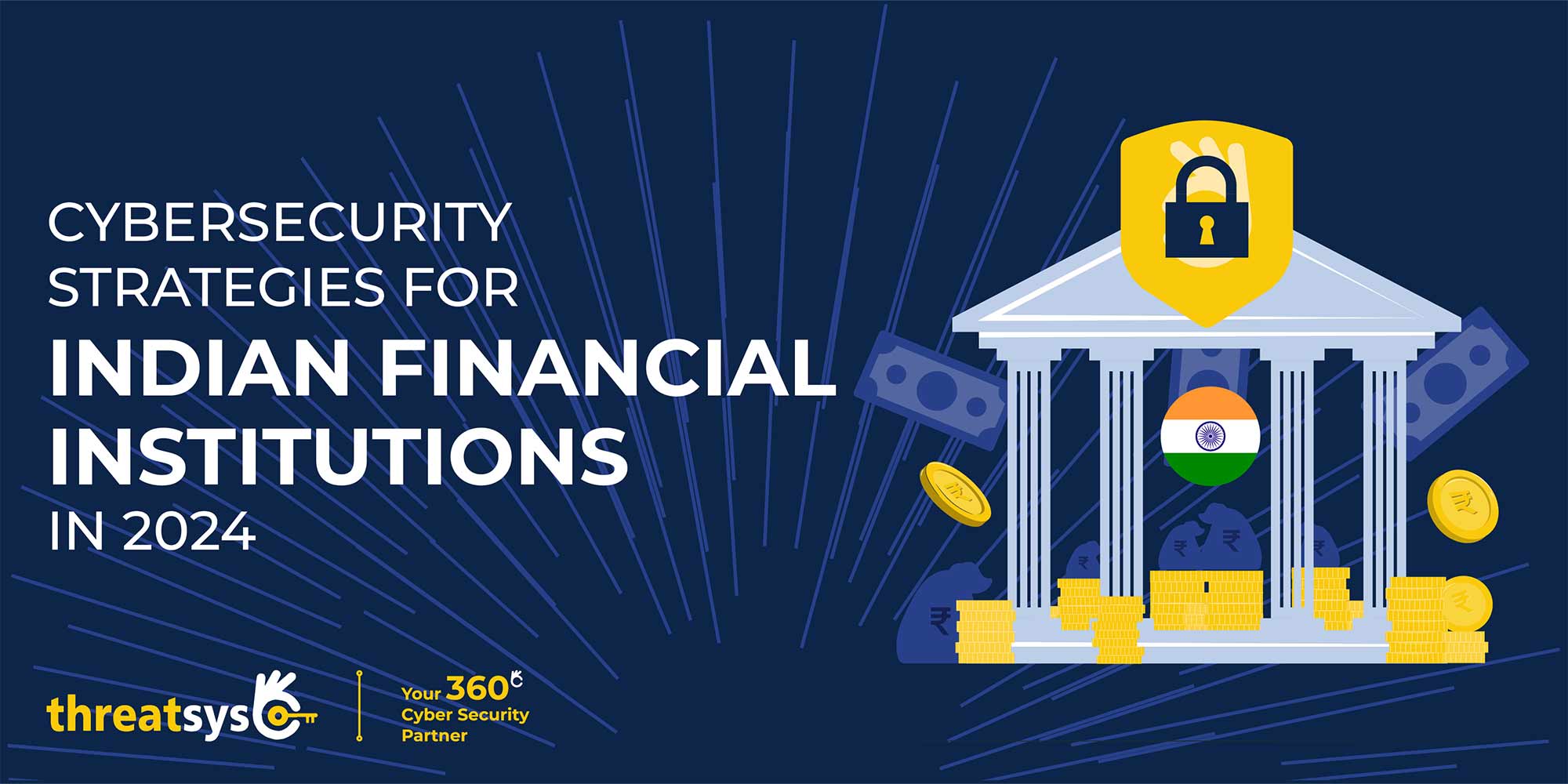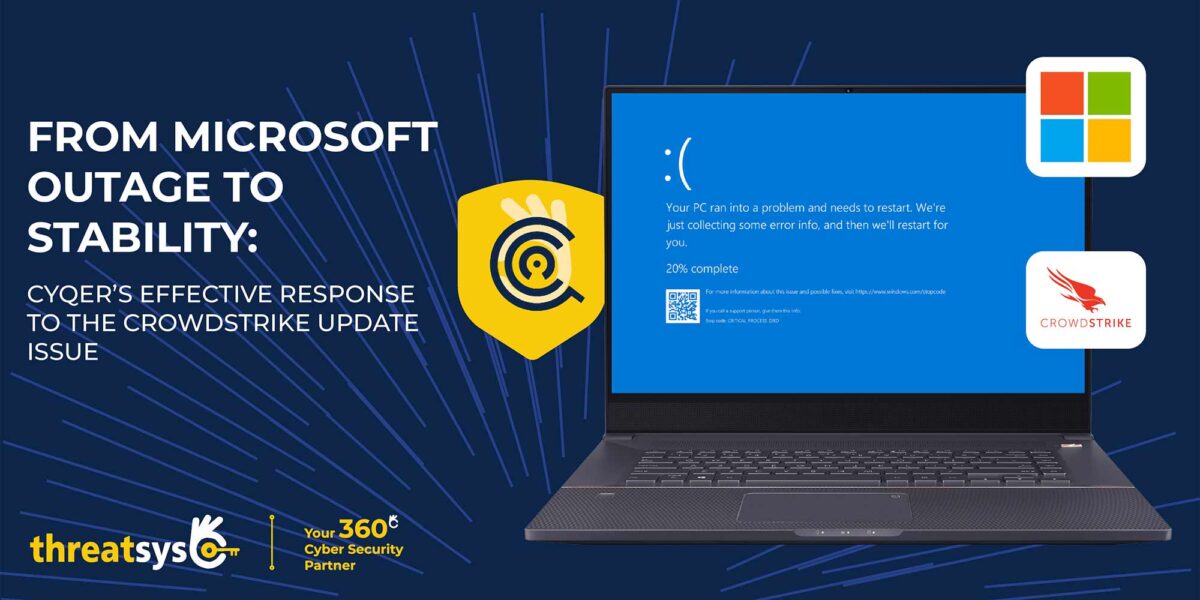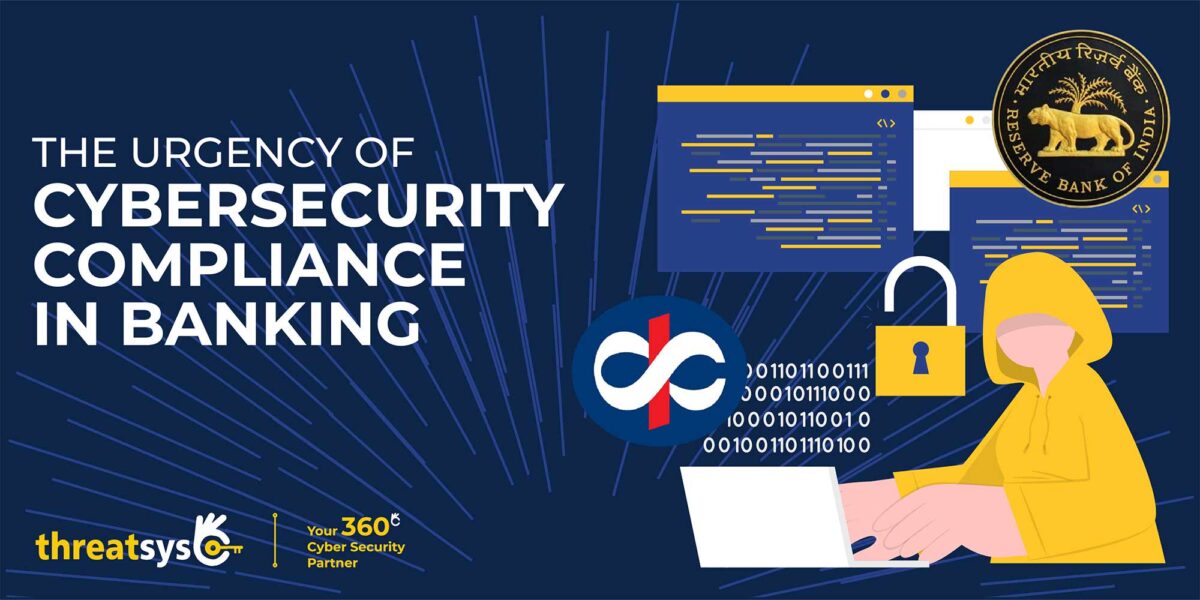As technology advances, so do the threats in the cyber realm, particularly for financial service institutions (FSIs) in India. With digital transformation accelerating, the need for robust cybersecurity measures has never been more urgent. In the intricate web of cyber threats, Indian FSIs must navigate a landscape fraught with challenges, necessitating a proactive stance fortified by innovative strategies and partnerships with cybersecurity experts like Threatsys.
Navigating the Cyber Perils in India’s Financial Sector
In India, the financial sector faces a barrage of cyber threats, mirroring global trends. Cybercriminals are capitalizing on vulnerabilities, aiming to breach security fortifications and exploit sensitive financial data. Recent data underscores the severity of the situation:
- Indian FSIs witness a relentless barrage of cyberattack attempts, showcasing the magnitude of the threat landscape.
- The uptick in attacks demands heightened vigilance and sophisticated defense mechanisms.
- Delays in detecting and mitigating breaches leave FSIs susceptible to prolonged exposure and financial ramifications.
- Concerns among senior bank executives regarding the efficacy of existing cybersecurity measures highlight the urgency for improvement.
- The targeting of service providers catering to smaller banks underscores the interconnected nature of cyber risks, emphasizing the need for stringent vendor management protocols.
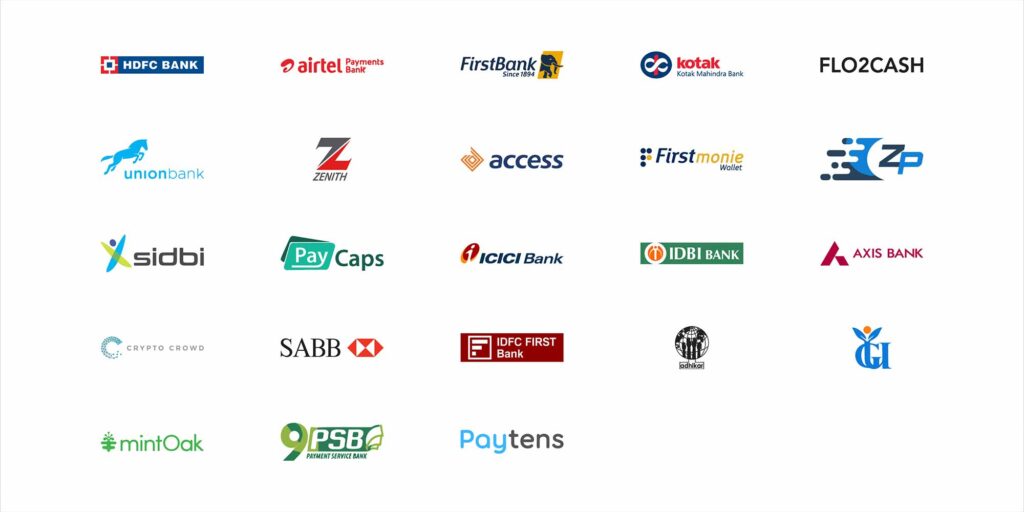
Key Cybersecurity Challenges for Indian FSIs
- Elevating Cloud Security: As Indian FSIs increasingly adopt cloud computing solutions for scalability, flexibility, and cost-effectiveness, they encounter unique security challenges. Cloud environments introduce complexities in data protection, as information traverses diverse services and geographies. Traditional perimeter-based security measures become less effective in safeguarding data across dynamic cloud infrastructures. To address these challenges, Indian FSIs must prioritize comprehensive cloud security strategies:
- Data Encryption: Implement robust encryption mechanisms to protect data at rest and in transit within cloud environments.
- Access Management: Employ stringent identity and access management protocols to control user access and permissions.
- Zero-Trust Model: Embrace the zero-trust security model, where trust is never assumed, and verification is required for every access attempt.
- Understanding Cloud Environments: Tailor security measures to suit public, private, and hybrid cloud environments, understanding their nuances and security implications.
- Combatting Ransomware: Ransomware attacks present grave threats to Indian FSIs, jeopardizing sensitive financial data and disrupting operations. These attacks have evolved, leveraging sophisticated tactics like “Ransomware as a Service” (RaaS) to target institutions of all sizes. Traditional defense mechanisms often prove inadequate against these advanced threats, necessitating a multi-layered defense approach. Key strategies for combating ransomware include:
- Threat Intelligence: Deploy advanced threat intelligence systems to monitor and detect emerging ransomware threats in real time.
- Regular Audits: Conduct comprehensive security audits to identify vulnerabilities and gaps in existing defenses.
- Proactive Threat Hunting: Engage proactive threat-hunting teams to identify and neutralize potential threats before they escalate.
- Incident Response Planning: Develop robust incident response plans to mitigate the impact of ransomware attacks and ensure swift recovery.
- Enhancing Vendor Risk Management: Indian FSIs rely heavily on third-party vendors for a range of services, from cloud computing to customer relationship management. Each vendor relationship introduces potential cybersecurity risks, complicating the task of managing and mitigating these risks effectively. Strategies to enhance vendor risk management include:
- Continuous Monitoring: Implement ongoing monitoring and evaluation of vendor security practices to ensure compliance with agreed-upon standards.
- Security Audits: Conduct regular security audits of vendors to assess their adherence to security protocols and practices.
- Integration with Cybersecurity Strategy: Integrate vendor risk management into the overarching cybersecurity strategy to maintain consistency and alignment with organizational goals.
- Navigating Regulatory Compliance: Indian FSIs operate in a regulatory landscape characterized by a myriad of international, national, and regional regulations governing cybersecurity practices. Navigating these regulatory requirements demands a comprehensive understanding of applicable laws and standards, as non-compliance can result in severe penalties and reputational damage. Strategies for navigating regulatory compliance include:
- Required Cyber Security Audits and Compliance: To effectively navigate this landscape, community banks must develop a deep understanding of relevant regulations, such as the ISO 27001, PCI DSS, SOC 2 Type 2, and more.
- Dedicated Compliance Teams: Establish dedicated teams responsible for monitoring regulatory changes and ensuring compliance with relevant standards.
- Virtual Chief Information Security Officer (vCISO): Leverage virtual CISO services to provide strategic guidance and oversight of cybersecurity compliance efforts.
- Training and Awareness Programs: Conduct regular training and awareness programs to educate staff about regulatory requirements and best practices.
- Addressing the Talent Gap: The cybersecurity talent gap poses a significant challenge for Indian FSIs, limiting their ability to recruit and retain skilled professionals capable of addressing evolving cyber threats. The shortage of cybersecurity expertise necessitates innovative strategies for talent development and acquisition. Strategies for addressing the talent gap include:
- Internal Training Programs: Develop internal training programs to upskill existing staff and equip them with the knowledge and skills required to tackle cybersecurity challenges.
- Collaboration with Educational Institutions: Forge partnerships with educational institutions to develop cybersecurity curricula and cultivate a pipeline of skilled professionals.
- Outsourcing and Automation: Consider outsourcing certain cybersecurity functions and leveraging automation technologies to optimize resource allocation and augment existing capabilities.

In summary, Indian FSIs face a multitude of cybersecurity challenges, each requiring careful consideration and proactive measures to mitigate risks effectively. By addressing these challenges comprehensively and adopting a proactive approach to cybersecurity, FSIs can strengthen their defenses, safeguard sensitive data, and preserve customer trust in an increasingly digital landscape.
Crafting a Resilient Cybersecurity Framework
A proactive cybersecurity framework is indispensable for Indian FSIs. By aligning strategic objectives, adopting risk-centric approaches, and embracing continuous optimization, FSIs can fortify their defenses against evolving threats.
At Threatsys, we recognize that a proactive cybersecurity framework is paramount for Indian Financial Service Institutions (FSIs) to safeguard their operations and data against evolving threats. Our comprehensive suite of cybersecurity solutions and services is tailored to align with strategic objectives, adopt risk-centric approaches, and facilitate continuous optimization for FSIs.

Preparedness for Tomorrow’s Challenges
The future of cybersecurity hinges on technological advancements and adaptive strategies. Embracing innovations such as AI, machine learning, and blockchain, alongside a steadfast commitment to resilience, will empower Indian FSIs to navigate the evolving threat landscape with confidence.
In essence, Indian FSIs must prioritize cybersecurity as a cornerstone of their operations. By forging partnerships with trusted cybersecurity providers like Threatsys and embracing proactive strategies, FSIs can mitigate risks, safeguard data, and uphold the trust of their customers in an increasingly digitized financial landscape.

Aligning Strategic Objectives
Threatsys collaborates closely with Indian FSIs and International Fintech Organisations to align cybersecurity initiatives with strategic objectives. Through in-depth consultations and assessments, we identify key areas of vulnerability and develop customized cybersecurity strategies tailored to the unique needs of each institution.
Our services include:
- Strategic Cybersecurity Planning: We work with FSIs to develop comprehensive cybersecurity roadmaps aligned with organizational goals and regulatory requirements.
- Security Policy Development: Threatsys assists FSIs in crafting robust security policies and procedures to establish a strong foundation for cybersecurity governance.
- Risk Assessment and Management: We conduct thorough risk assessments to identify potential threats and vulnerabilities, enabling FSIs to prioritize resources effectively.
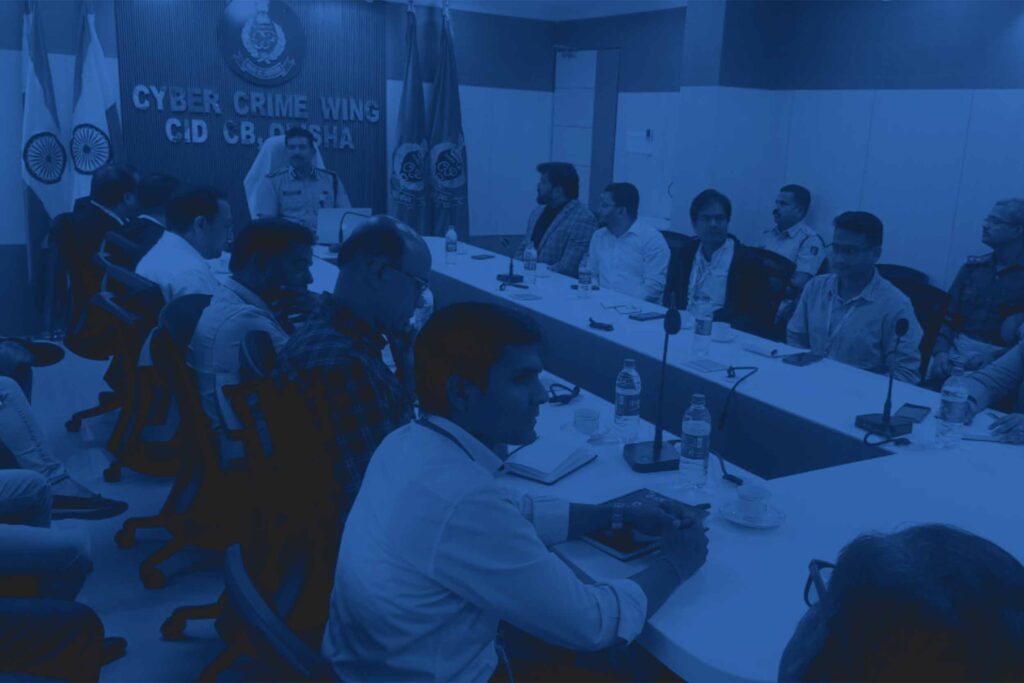
Embracing Technological Advancements
The future of cybersecurity relies on embracing technological advancements and innovative solutions. At Threatsys, we leverage cutting-edge technologies such as AI, machine learning, and blockchain to enhance security capabilities and stay ahead of emerging threats.
Our solutions include:
- AI-Powered Threat Detection, All in one SOC i.e. CYQER: Threatsys employs advanced All in One SOC Solutions to detect and mitigate threats in real-time, enabling FSIs to proactively defend against sophisticated attacks.
- Machine Learning for Anomaly Detection: Our machine learning algorithms analyze vast amounts of data to identify anomalies and potential security breaches, providing early warning signs of cyber threats.
- Blockchain for Data Integrity: We leverage blockchain technology to ensure the integrity and immutability of financial data, enhancing transparency and trust in FSI transactions.

Continuous Optimization
At Threatsys, we believe in the importance of continuous optimization to adapt to evolving cybersecurity challenges. Through ongoing monitoring, assessment, and refinement, we help FSIs maintain robust security postures and stay resilient in the face of changing threat landscapes.
Our services include:
- Security Operations Center (SOC) Services: Threatsys operates state-of-the-art SOC facilities equipped with advanced monitoring and response capabilities, ensuring round-the-clock protection for FSIs.
- Cyber Security Audits and Compliance: We assist FSIs in developing comprehensive incident response plans and conducting regular drills to test and refine compliance processes like PCI DSS, SOC 2 Type 2, ISO 27001, GDPR, and DPDP Compliances.
- Threat Intelligence and Red Teaming Solutions: Threatsys provides FSIs with timely threat intelligence and facilitates Red Teaming Solutions to enhance collective defense efforts.
In essence, Threatsys empowers Indian FSIs to prioritize cybersecurity as a cornerstone of their operations. By forging partnerships with us and embracing proactive strategies, FSIs can mitigate risks, safeguard data, and uphold the trust of their customers in an increasingly digitized financial landscape. Together, we can build a resilient cybersecurity framework that enables FSIs to thrive in the digital age.

Stay ahead of the game and protect your organization from cybersecurity attacks. Don’t wait for an attack to occur, take preventive measures today.

Increase your preparedness,
Solidify your security stance

